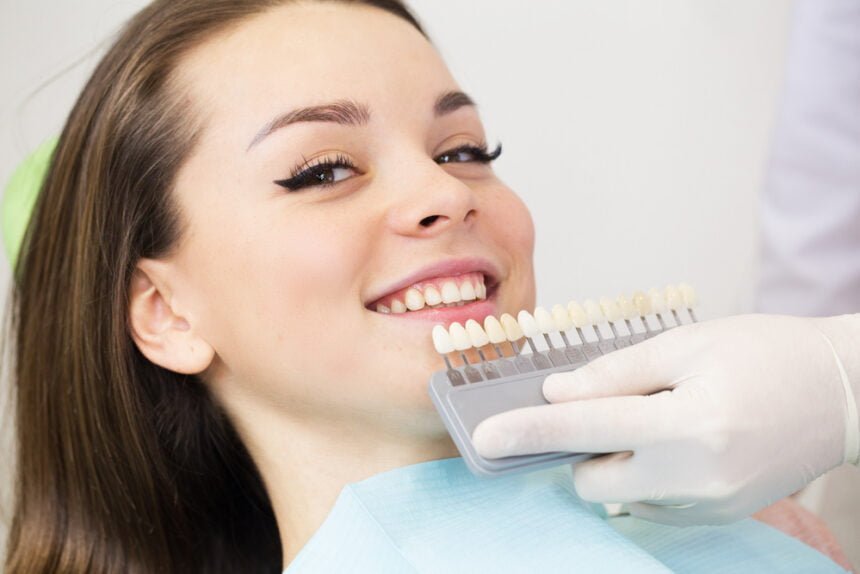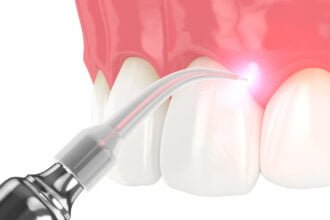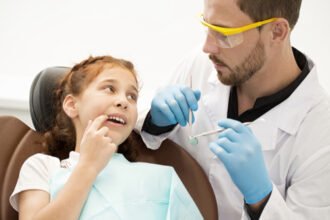Healthy teeth and gums are integral for an attractive smile and overall wellbeing, so this comprehensive guide offers helpful techniques and insights into improving oral health.
Brush twice daily using fluoride toothpaste in a gentle circular motion to clean each surface of each tooth. Incorporating flossing daily as part of your regimen to remove plaque build-up between and around gum lines. Drink plenty of water throughout the day for mouth rinse purposes to eliminate food particles that have settled on teeth.
Brushing
Your oral and dental health plays an integral part of overall well-being. A beautiful smile gives a positive first impression, allows you to eat nutritious foods and beverages, and expresses emotions freely. Unfortunately, poor oral health has been linked with many medical conditions; regular dental check-ups and daily care could potentially prevent many issues related to poor dental health from emerging.
Brushing can remove plaque, the colorless film of bacteria that causes tooth decay and gum disease, as well as dislodging food particles lodged between teeth. Choose a soft bristled toothbrush when brushing, replacing it every three to four months (or sooner if the bristles fray) for best results.
Flossing daily is an integral component of good dental hygiene. When flossing, hold the floss tightly between your thumb and forefinger with no slack remaining between each tooth, using a rocking motion between each one. Beware of sawing between teeth or jerking the floss to avoid damage to tissue.
Flossing
Flies will come and go but your teeth remain clean! But flossing should not simply be considered an indulgence – it should also form part of a comprehensive oral health routine, helping prevent tooth decay and gum disease.
Food that remains between your teeth can form plaque, leading to gum inflammation (known as gingivitis) and eventually tooth loss. To remove this food, the best way is through flossing or using an interdental brush.
As with dieting or exercising, flossing must be undertaken gently; your gums need time to adjust to any new habits that might disrupt their regular function. And remember, flossing alone won’t do; brush twice daily for two minutes using an appropriate mouthwash and see your dentist twice annually for routine cleanings.
Routine Checkups
Routine checkups may seem unnecessary to your oral hygiene regimen, but they’re actually vitally important. They enable your dentist to assess the overall state of your teeth and gums as well as perform prophylaxis cleaning – more comprehensive than brushing alone in terms of eliminating plaque that causes decay – as part of prophylaxis.
Professional dentists Guelph can detect any underlying concerns such as bone loss in the jaw or impacted teeth that cannot be detected visually. Furthermore, they may take dental X-rays that allow them to examine more of your mouth and jaw area than would be possible through visual evaluation alone.
These professionals can also advise you on changes to your oral hygiene routine or diet that can improve oral health, often eliminating the need for invasive treatments and preventing future issues like gum disease (for instance gingivitis can develop into periodontitis if left untreated early and cause bad breath, swelling and bleeding).
Mouthwash
Attaining proper oral hygiene requires using mouthwash as part of your routine to protect both your teeth and gums, and improve your breath. Most mouthwashes contain antimicrobial ingredients to kill germs responsible for tooth decay, bad breath, or gum disease; some even feature foaming agents to dislodge food particles from between your teeth or dislodge plaque accumulations from between teeth.
Rinsing for at least 30 seconds to ensure all areas of the mouth receive active ingredients from mouthwash are covered. However, take caution not to ingest this substance since it contains chemicals which should not be consumed – instead spit it into the sink rather than drinking it directly!
Mouthwash may help prevent plaque buildup on gums, in-between teeth, and on the surfaces of teeth; however, it should never replace brushing and flossing to effectively eliminate accumulations of plaque before they harden into tartar that requires professional tools during an examination or dental cleaning session.
When it comes to maintaining optimal oral health, finding the right dentist in Berwick is essential. A skilled dentist can guide you through the best practices for keeping your teeth and gums healthy, from regular check-ups to personalized hygiene tips.










